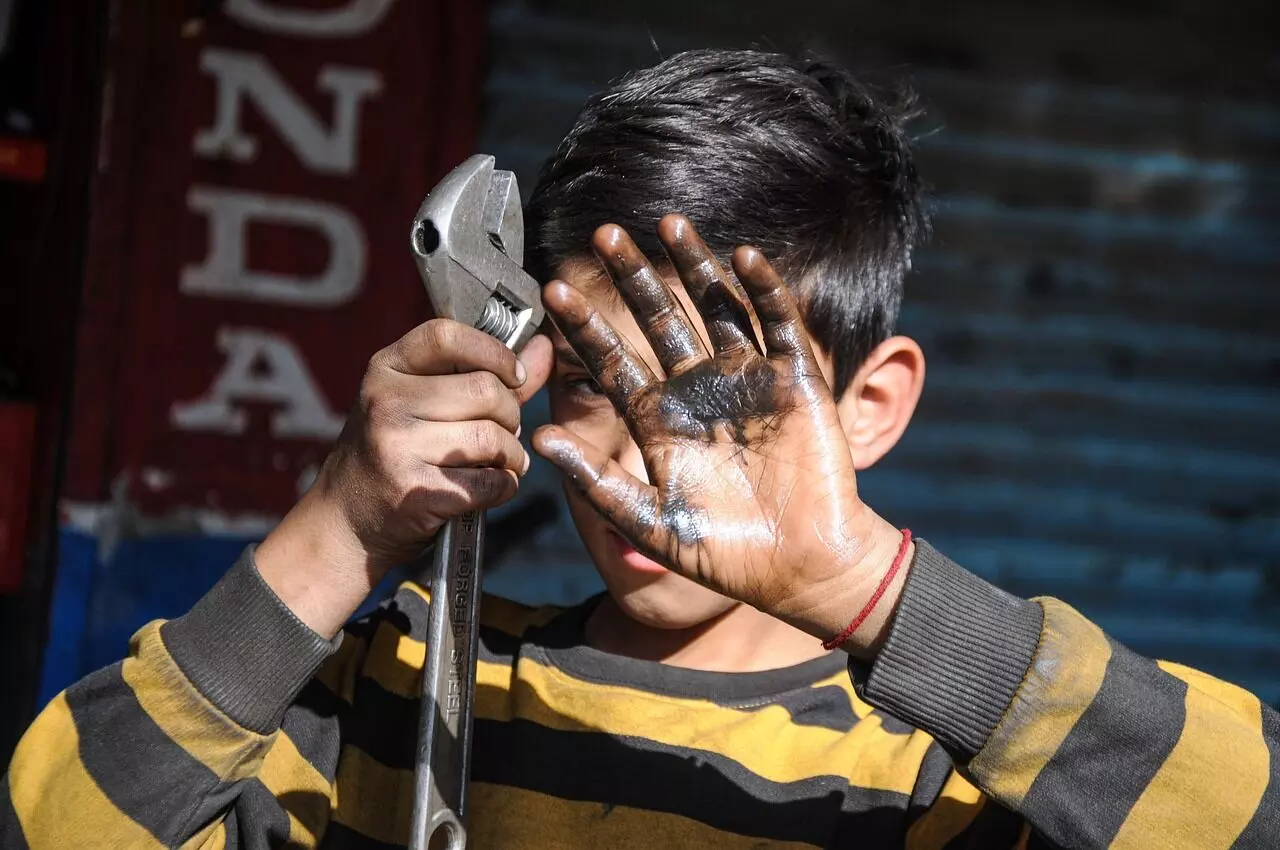Childhood curtailed!
Ignorance around the heart-wrenching stories of poverty-stricken children forced into child labour is perhaps the greatest barrier against addressing the scourge

"There can be no keener revelation of a society's soul than how it treats its children." We find this inspiring and highly pertinent quote by Nelson Mandela.
Having a contented childhood constitutes the aspiration of all, yet regrettably, not all are fortunate enough to experience it. In our daily lives, we bear witness to the juxtaposition of children attending school and others engaged in laborious tasks. These children endure malnutrition and lack of education. On contemplation, this aberration from the norm is far from acceptable. A childhood marked by schooling, learning, play, and joy should stand as the ordinary expectation.
Child labour encompasses work that imperils children or deprives them of an education. Globally, countless young children find themselves excluded from schools and thrust into labour. The International Labour Organisation estimates that 215 million children, aged 5 to 17, are engaged in activities that are considered illegal, hazardous, or exploitatively harsh.
Children worldwide often participate in both paid and unpaid forms of labour, which are innocuous and harmless. However, when they engage in work prematurely or involve themselves in hazardous endeavours that threaten their physical, mental, social, or educational growth, they become categorised as child labourers
The underlying cause for the engagement of underage children in various occupations lies in their families' extreme poverty. A significant number of children find themselves working in agriculture, fishing, manufacturing, mining, and domestic service. This global concern extends to more insidious realms, including the illegal sale and trafficking of children into debt bondage, forced labour, and even their forced recruitment into armed conflicts, commercial sexual exploitation, and illicit activities such as drug production and trafficking.
Upon introspection, it becomes apparent that we unknowingly exchange the happiness of one child's formative years for the labour of another. The cocoa industry serves as a stark example. When we consider buying chocolates for children, we rarely contemplate their production process. The children toiling to create these delights seldom get to taste the sweetness of cocoa themselves. Instead, their lives are characterised by perilous labour on empty stomachs and inadequate wages. What we enjoy as a treat is the result of their toil, sacrifice, and tears — a stark contradiction to the joy we derive.
In Asia, domestic child labour is unfortunately commonplace. These children face daily mental and physical abuse. While children their age lead carefree lives, these labourers toil to secure a better future for their families. Their experiences often encompass physical and sexual abuse, truncating their mental development before it can even take root.
Organisations that advocate for these children share heart-wrenching stories. Yet, even as the harsh reality of child labour is unveiled, millions of children continue to toil. While documentaries elicit tears, our interactions with these children can be callous. Do we genuinely seek change in their lives, or do we choose to ignore the issue as long as it does not affect our own children?
Despite the prohibition of child labour in most countries, its prevalence remains unchecked. It continues to rob children of their innocence and sap their potential.
Today's children are the foundation of tomorrow's society. To secure a brighter future, we must unite in our efforts to foster their growth and potential. Through collective action, we can free them from the shackles of exploitation, enabling them to thrive and become the pride of our society.
The writer is a 3rd year student of Journalism and Mass communication, Delhi School of Journalism. Views expressed are personal



